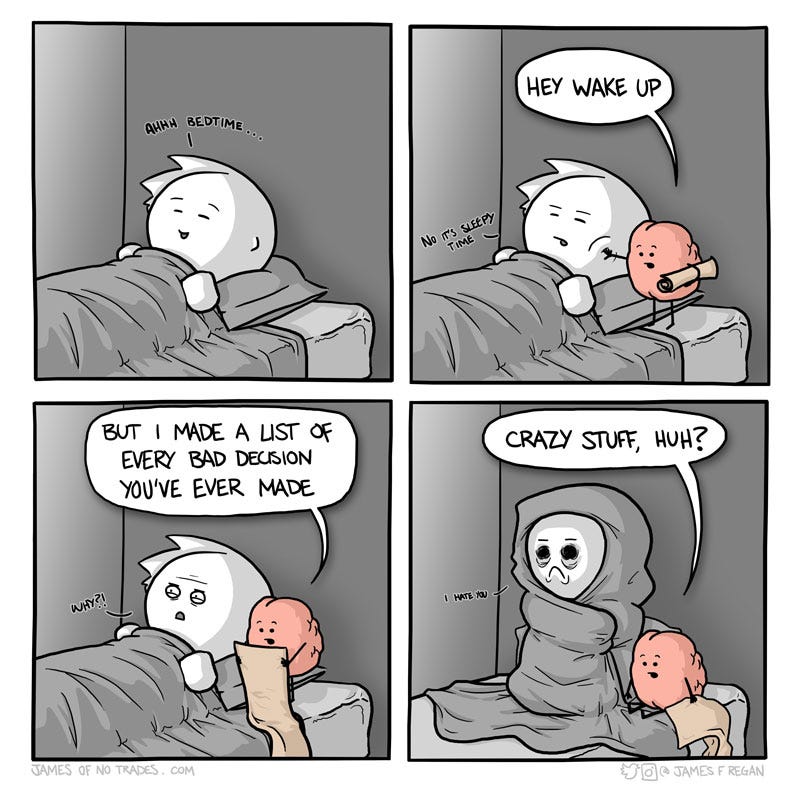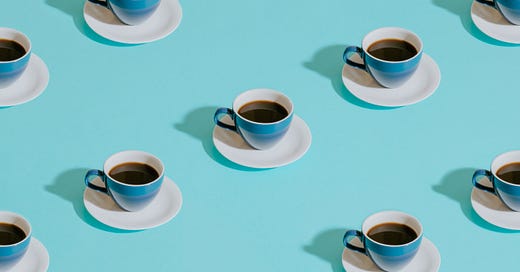Habits are a great way to streamline decision-making and you can probably think of many examples in your own life: maybe going for a run in the morning, buying a coffee on the way to work, or reading a book before going to sleep. When you perform a particular action enough times, it transitions into a more “offline” mode in the brain. There’s no need to spend valuable cognitive resources on deciding whether or not to buy a coffee each day when it can be a daily automation; you simply buy the coffee by default while worrying about more important things.
Habits aren’t always good though, and it can be tough to tell the difference. We all like to think we know ourselves better than anybody else knows us, but we’re not very good at understanding why we act in one way rather than another. When we make any choice in the world, there are a variety of reasons for making that choice. Why did we choose a Coca Cola over a Pepsi? Was it the taste? Was it marketing? Was it just a habit?
New research is suggesting we seriously underestimate how much our behavior is explained by habit. We like to over-rationalize and attribute our decisions to good reasoning, but under the hood, those decisions are often explained by unconscious routines running in our brains.

👤 The hidden influence of habit
In a paper published in March 2022, researchers at the University of Southern California investigated how habits influence people’s decisions. For their first experiment, they recruited 808 participants and asked them to spend 30 seconds writing about an event in their life that made them feel either happy, sad, or neutral. This short task was designed to adjust people’s moods by asking them to recall emotional memories.
The researchers then asked everyone to perform a simple habit formation task by pressing one of two buttons across 40 trials. In a “strong habit” condition, people had to press one button 90% of the time and the other button only 10% of the time. In a “weak habit” condition, people had to press the two buttons with equal probability.
After habit training, each participant answered a final question with a hidden agenda: “Are you willing to complete 40 additional trials (~5 minutes) as a favor to us (without additional compensation)?”. They responded to this question using the same buttons they used in the habit training task—one button meant “Yes” and the other meant “No”. For the people in the strong habit condition, the highly trained button always indicated “No”. The researchers wanted to compare how mood and habit would affect people’s willingness to help.
After checking in with how people felt, the researchers found that the initial emotional manipulation worked: when people recalled a sad event in their life, they reported feeling sadder, and when they recalled a happy event in their life, they felt happier. But importantly, this mood change had no impact on whether people agreed to do the favor requested at the end of the experiment.
Habit, on the other hand, did have a significant impact on people’s willingness to help. People in the strong habit condition were less likely to agree to the favor than people in the weak habit condition were. Training people to press an arbitrary button made them more likely to press it when it had a different connotation (i.e. “No, I don’t want to help you”). If you do something repeatedly, you’re more likely to keep doing it, even in completely different contexts.
Interestingly though, when people were asked how much their willingness to help was explained by habit vs mood, they believed that mood was a 52% stronger influence. People underestimated how much their habits determined their decisions. We like to justify our actions with conscious reasoning like “I decided not to help because I feel sad”. But in reality, we’re often just continuing a preexisting pattern in our behavior.
In a second experiment, the researchers tested the effects of habits in a more natural environment by examining coffee consumption. They first asked a group of 40 people to rate how much they believed influences like fatigue, habit, and taste determined a person’s choice to drink coffee. Respondents believed that fatigue was the number one reason, followed by taste, followed by habit.
For five days, the researchers then asked 112 students to report how tired they felt and how much coffee they drank every two hours via their smartphones. In one survey, they also asked everyone to rate how much their “past behavior and habits” and “energy levels and tiredness” influenced their decisions to drink coffee. Correct answers were rewarded with extra cash payouts to really incentivize people to think carefully.
On average, people drank coffee once or twice a day. The researchers calculated how much each person’s fatigue scores and habit scores predicted these coffee-drinking choices. Habit scores included both how often people drank coffee and how consistent the context was (e.g. how often they drank coffee at the same time or location across days).
Both fatigue and habit predicted whether or not people would choose to drink coffee each day. But similar to the previous study, habit was the strongest influence. People believed they would be more likely to drink coffee because they were tired, but they were actually more likely to drink coffee because it was what they always did.
In other words, habits have a powerful impact on our daily decision-making. Despite our expectations, our reasons for choosing one action over another are often less to do with how we think or feel and more to do with our automated tendencies.
⭐️ Takeaway tips
Develop a better awareness of your daily habits: We typically engage in habits without thinking much about them. This is great for freeing up cognitive resources but it can also hinder your ability to detect unhealthy behaviors. For example, occasionally buying a coffee can make you feel happy and energetic, but when it becomes an automated habit, you can end up buying more than you want without realizing it. By occasionally checking in with your daily routines, you can identify when a habit is working well for you and when a habit is pushing you into excess.
Find subscriptions to cancel: The ultimate exploitation of habit is the subscription model for products and services. When you subscribe to a product with an automatic monthly fee, it’s easy to lose track of how much you’re spending on it and whether it gives you enough personal value. Check all the active subscriptions on your account and think about how happy they make you. Would canceling any of them leave you better off?
Your behavior isn’t always what it seems: In the studies above, people consistently misunderstood why they made particular choices in their lives. Keep in mind that the stories you tell yourself about what you enjoy, think, and do each day aren’t always correct. A healthy skepticism toward your motivations in life can help you to ask more interesting questions and find more revealing answers about what makes you who you are.
💡 A final quote
“The diminutive chains of habit are seldom heavy enough to be felt, till they are too strong to be broken.”
~ Samuel Johnson
❤️ If you enjoyed this, please share it with a few friends. If you’re new here, sign up below or visit erman.substack.com
📬 I love to hear from readers. Leave a comment on this post or feel free to email me your questions.
👋 Until next time,
Erman Misirlisoy, PhD



